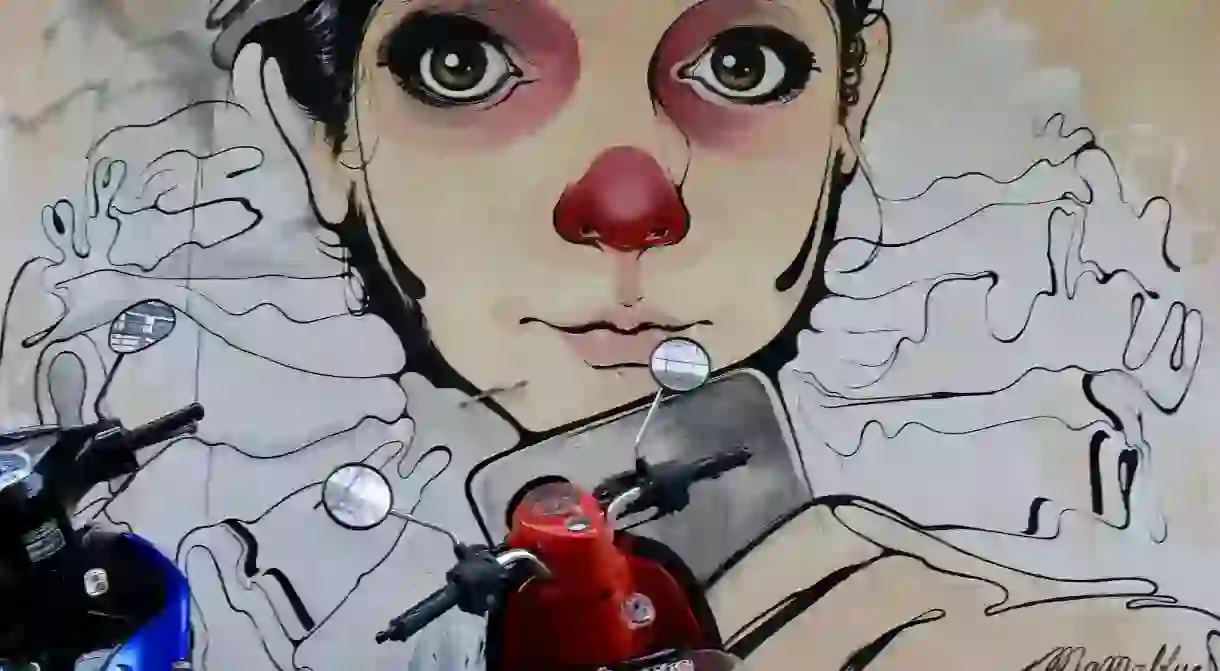10 Traditions Only Locals in Thailand Can Understand

Are you hoping to blend in like a local on your next visit to Thailand? Here are 10 traditions only locals in Thailand can understand, that will help you fit right in.
Different day, different color
On Wednesdays, we wear pink. In Thailand, green is actually worn on Wednesdays. Visitors to the Kingdom may notice that Thai people seem to wear a sea of similar colors. This is because each day of the week is assigned a particular color. Monday is for yellow. Tuesday is for pink. Wednesday is for green, and so on. Not all Thais follow this dress code, but some of them do, especially those who work for the government. Monday is the most important day, as yellow is a lucky color. Yellow also represents the late King Bhumibol, who was born on a Monday.

Keeping your cool
Every tourist should learn the phrase mai pen rai before arriving in the Kingdom. This means ‘don’t worry’ and is one of the most frequently used phrases you’ll hear. This is how the country received its nickname, the Land of Smiles. Visitors will be hard-pressed to encounter a Thai person who loses their cool. Regardless of most situations, many Thai people go to extreme lengths in order to remain smiling and courteous.

Greeting with Wai
Those visitors to Thailand who stick their hand out to shake a stranger’s in greeting will be met with strange looks and confusion. The wai is considered a normal greeting in Thailand. This is a motion where a person puts their hands together and drops their shoulders in order for their nose to touch their hands. It resembles a bow. The higher the hands go on someone’s face, the more respectful the greeting. This greeting can mean a multitude of things, including hello, thank you, and goodbye.

Snacking on insects
From grasshoppers to silk worms, many Thai people love snacking on creepy crawlies. These edible bugs can be found on many sois (streets) of Thailand in addition to convenience stores. They are especially popular at markets. While many tourists try them for the shock value, snacking on insects is perfectly normal for many living in the Land of Smiles.

Communal dining
Oftentimes, Westerners tend to be greedy with their meals. The thought of sharing a dish is unfathomable, and anyone who tries to put their hands on someone else’s meal will pay the price. Prepare for a shocking experience then, because this is very much the norm in Thailand. In Thailand, people helps themselves to a portion or two of whatever is on the table. Really the only reason one would not partake in a family style meal is because of particular dietary needs, for example, if someone was vegetarian.

Take your shoes off
In Thailand, people’s feet are considered the most disrespectful part of the body. This is why visitors will notice that at many establishments, from restaurants to massage parlors and especially homes, Thai people remove their shoes before entering. Be sure to follow the lead, and whatever you do, do not point your feet in the direction of someone else. It is considered very impolite. As an extension of this tradition, the head is considered the most sacred part of a person’s body, so do not touch anyone’s head unless given permission.

Respect the monarchy
Especially with the latest election of President Donald Trump, many people around the world have shown their disdain for their leaders in one way or another. That being said, this is not the case in Thailand. The vast majority of people here have the utmost respect for the monarchy, and there are strict rules in place to punish those who display otherwise.

And the elderly
While this is oftentimes the norm for many cultures (as it should be), it is extremely important to Thai people to respect their elders. People of different ranking and age are addressed with particular titles, which are too complicated and abundant to detail here. That being said, be sure to be respectful and drop your head when in the presence of someone who is older than you.

Always end in “Ka” or “Krup”
When conversing with anyone, it is important to remember these two endings. It may sound incredibly redundant and repetitive to those who do not speak Thai, but after every sentence, it is customary for whoever is speaking to end their sentence with either “ka” or “krup.” While this is a way to show respect, visitors will hear these two words used often among friends, as well. “Ka” is said by women and “krup” is used by men.

Ice cold beers
Many Thai people drink their beers ice cold… literally. Between the heat and the many outdoor bars and bazaars which beer-drinkers frequent, keeping brews cold has proven to be a difficult task. This may be why many Thai people drink their beer with a handful of ice cubes. Serious beer connoisseurs may find this disturbing, but it does work.













